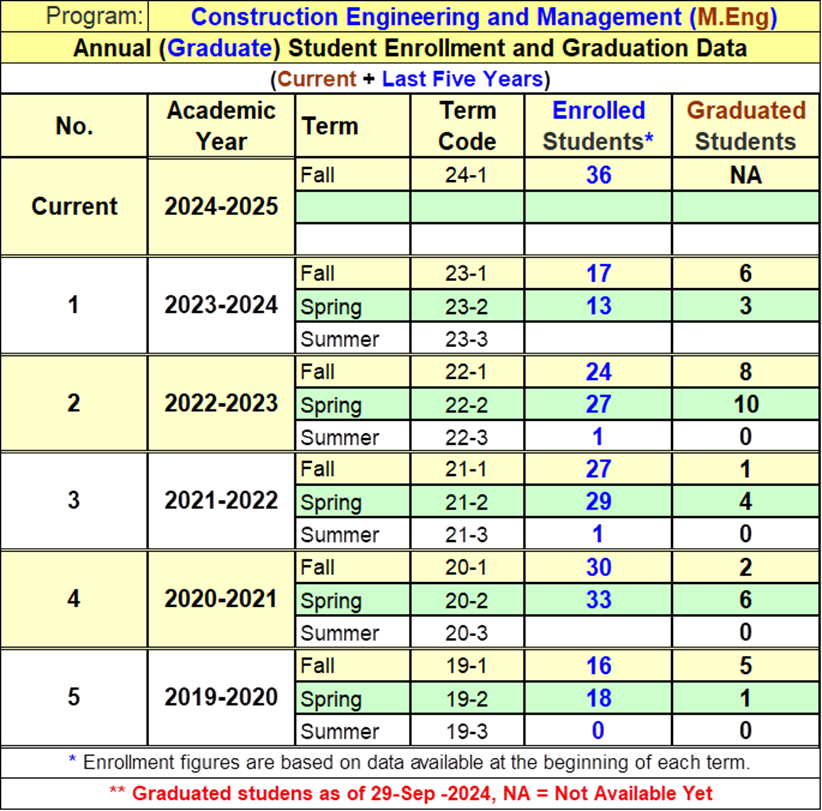The graduate program MEG in Construction Engineering & Management is accredited by the Engineering Accreditation Commission (EAC) and the Applied and Natural Science Accreditation Commission (ANSAC) of ABET, https://www.abet.org, under the General Criteria and the Construction Engineering (EAC), Engineering Management (EAC) and Construction Management (ANSAC) Programs Criteria. |
Program Educational Objectives (PEOs)
The Construction Engineering and Management graduates are equipped with diverse knowledge and skills that makes them capable of coping with the complex environment of construction project management. The program aims that in 3-5 years’ time after graduation:
- Graduates will advance in their professional careers and attain leadership roles in their respective organizations.
- Graduates will pursue advanced degrees or seek professional certification in Construction Engineering and Management or related field.
- Graduates will actively participate in professional and scientific activities relevant to Construction Engineering and Management.
Student Outcomes (SOs)
Student Outcomes (SOs) describe what students are expected to know and be able to do by the time of graduation. These relate to the skills, knowledge, and behaviors that students acquire as they progress through the program. Attainment of these outcomes prepares graduates to enter the professional practice of engineering.
The student will have the ability to:
- identify, formulate, and solve complex engineering problems by applying principles of engineering, science, and mathematics.
- apply engineering design to produce solutions that meet specified needs with consideration of public health, safety, and welfare, as well as global, cultural, social, environmental, and economic factors.
- communicate effectively with a range of audiences.
- recognize ethical and professional responsibilities in engineering situations and make informed judgments, which must consider the impact of engineering solutions in global, economic, environmental, and societal contexts.
- function effectively on a team whose members together provide leadership, create a collaborative and inclusive environment, establish goals, plan tasks, and meet objectives.
- develop and conduct appropriate experimentation, analyze and interpret data, and use engineering judgment to draw conclusions.
- acquire and apply new knowledge as needed, using appropriate learning strategies.
- conduct sound research in Construction Engineering & Management by utilizing appropriate research methods.
Annual Student Enrollment and Graduation Data
